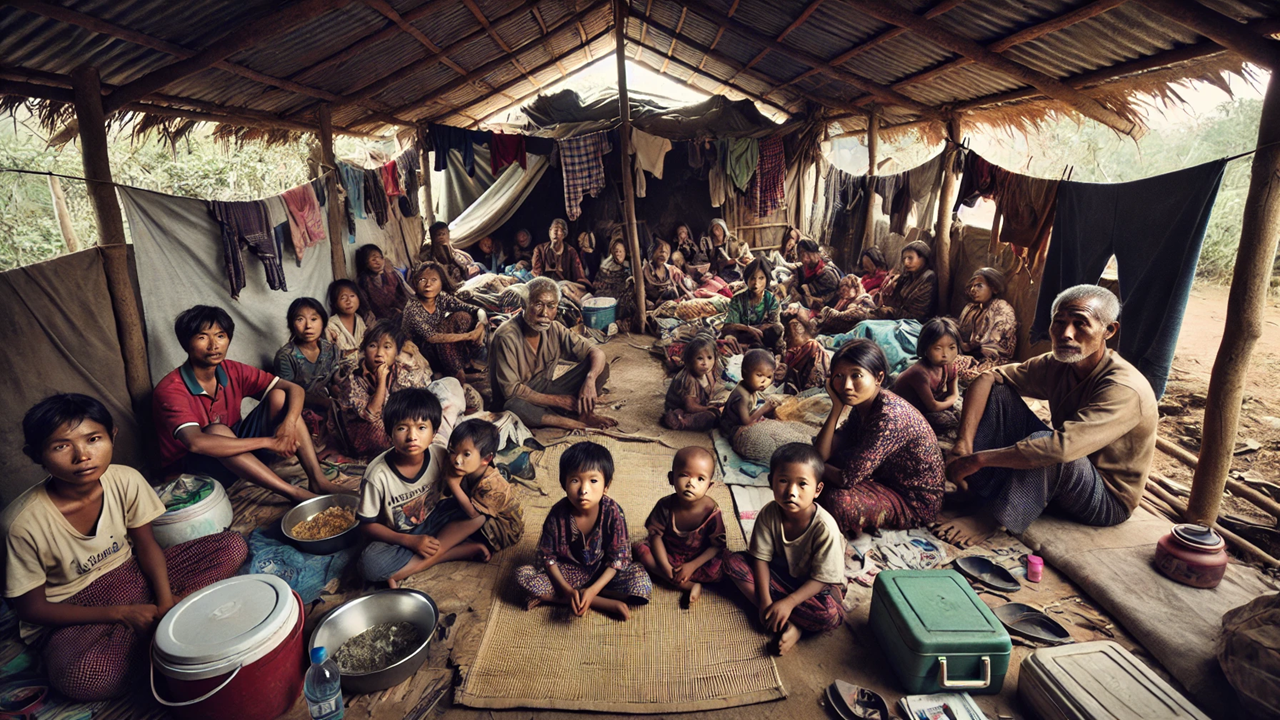UN Experts Condemn Myanmar Junta’s Dual Assault: Landmines and Discrimination Against Amputees
Military accused of weaponizing disabilities, blocking aid, and escalating human rights violations amid global call for action.

Myanmar now holds the grim title of the world's highest number of casualties from landmines and unexploded ordnance, according to a report released by the International Campaign to Ban Landmines. Yet, UN experts stress this statistic is only part of the broader crisis. They accuse Myanmar's military junta of not only widespread landmine use but also targeted attacks on people with disabilities, exacerbating the suffering of civilians.
“The junta’s use of landmines to suppress resistance is horrific enough, but their treatment of victims compounds the cruelty,” said UN experts in a joint statement. The military is accused of forcing civilians to traverse mine-laden areas ahead of their troops and obstructing critical aid, including medical care and prosthetics, for those injured.
Such actions violate international human rights laws, including Article 11 of the Convention on the Rights of Persons with Disabilities and Security Council Resolution 2475, which calls for protection and assistance for persons with disabilities in conflict zones.
“Amputees are being driven into hiding to avoid harassment and arrest, as missing limbs are treated as evidence of resistance activity,” said Tom Andrews, UN Special Rapporteur on human rights in Myanmar. “Losing a limb is a devastating ordeal anywhere, but in Myanmar, it is criminalized. This is an outrageous weaponization of disability.”
Landmine Casualties Surge in 2023
The International Campaign to Ban Landmines reported over 1,000 new landmine victims in Myanmar in 2023—the highest of any country. Many victims are civilians, including children, who inadvertently trigger mines in their communities. These injuries often lead to permanent disabilities, further compounded by the junta’s obstruction of aid and resources.
Andrews recounted meeting a young woman who lost her leg after stepping on a landmine near her home. “Her situation was heart-wrenching, but what enraged me was her doctor’s explanation: she couldn’t receive a prosthetic limb because junta forces block materials needed to make them,” he said.
Global Call for Action
UN experts are urging coordinated international action to weaken the junta’s ability to harm civilians and to pressure all parties in the conflict to cease the use of landmines. They called for the immediate removal of existing mines and expanded humanitarian aid access to landmine victims and persons with disabilities.
The crisis has prompted Andrews to launch a comprehensive research project on the impact of the military coup on persons with disabilities in Myanmar. The findings will be presented in a special UN report in 2025.
Amplifying the Crisis
Beyond the human cost, the use of landmines has disrupted livelihoods, displaced communities, and worsened the already dire humanitarian situation in Myanmar. Civilians face life-threatening risks in their daily activities, and survivors encounter barriers to rehabilitation and reintegration.
International organizations and human rights advocates have reiterated the urgency of addressing Myanmar’s landmine epidemic and ensuring accountability for the junta’s actions.
“This isn’t just about landmines; it’s about a systematic campaign to dehumanize and oppress,” said Andrews. “The world must act decisively to protect Myanmar’s civilians and uphold their basic human rights.”
Additional Information
Humanitarian Impact:
Displacement: Landmine-contaminated areas have forced families to abandon their homes and agricultural land, exacerbating food insecurity.
Healthcare Access: Medical facilities are under-resourced, and blockades make life-saving treatments unreachable for many victims.
Psychosocial Toll: Survivors and their families face stigma and isolation, worsening the mental health crisis in Myanmar.
International Responses:
Calls for increased sanctions against the junta.
Advocacy for universal adherence to the Mine Ban Treaty, which Myanmar has not signed.
Expedited delivery of prosthetics and mobility aids via humanitarian channels.
The situation in Myanmar underscores the urgent need for a global commitment to addressing landmine contamination and supporting those most affected by this devastating weapon of war.










